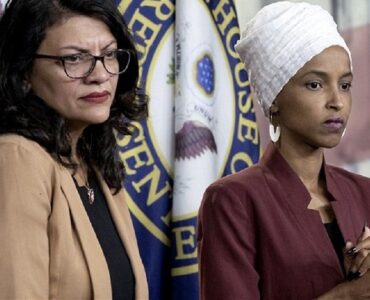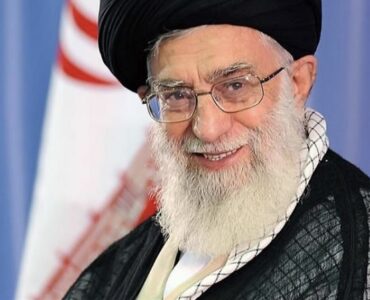
Muslims And Politics In The West
Regardless of their growing numbers in Europe and North America, and their increasing wealth in the United States and Canada, Muslims are aware that they have little political power to influence the government, the media, or the elites in the West. They have very few channels of communication to policy makers in the societies in which they live. A variety of factors hamper effective participation in the political process, including the lack of experience in participating in political activities, the fear of the consequences of political involvement, and the lack of experience in grassroots organizations or coalition building. Muslims also lack seasoned leaders and efficient organizations that are able to forge coalitions with other groups to bring about change and to influence legislation. This is generally ascribed to a lack of experience in Western-style democracy, which is based on compromise, which many Muslims believe to be tantamount to abandoning the principles of justice and truth. There are external factors as well; among them is their belief that Muslims in the West are often shunned by political candidates and parties as a perceived liability, because their participation might antagonize the Jewish lobby. Democratic presidential candidates have turned down Arab-American endorsements for fear of alienating Jewish support.
The issue of participation in the political process is now being debated within the Muslim community. Can a Muslim participate in the running of a kuffar (unbelievers) society? Should they vote for representatives who are accountable to various interests? Would such participation lead to defending the freedom to engage in things Islamically prohibited? Ali Kettani, a North African consultant to the Saudi government on Muslim minority affairs, has called for Islamic political representation: “Otherwise, Muslim politicians would be put in office by non-Muslim forces and would consequently be used to subjugate the Muslim community.” The political interests of the immigrant generation are generally focused on the countries left behind. The second generation demonstrates more interest and savvy in local politics. Younger Muslims in Britain, for example, are increasingly involved in British politics. Their interests focus on antiracist and anti-deportation organizations. They have also worked on campaigns for legislation to allow family reunions and to fight police violence.
In Birmingham, Muslim political participation is mostly aimed at the local level. In 1982 the first Muslim labor representative to the ward was elected. The following year the number increased by two, and by 1987 the first Muslim woman was elected. Many Muslims in Britain vote for the Labour Party because many are laborers and would therefore benefit from the party’s programs. In 1984 a Muslim charter appeared recommending that Muslims vote for those who would support their agenda concerning schools, sex education, Muslim personal laws, and provisions for Muslims in state schools. Nothing came of it; nor has the call for the establishment of a Muslim parliament. In Britain local authorities run social services, housing, leisure, and community services, public health programs, and economic, urban development, and equal opportunity programs. Most Muslim concerns are tackled on the local level. In 1993 there were twelve Muslim councilors of 117 in Britain, all members of the Labour Party.
In the Netherlands consultative ethnic minority councils were established in various areas, especially in the major cities where immigrants congregate: Amsterdam, Rotterdam, the Hague, and Utrecht. The councils are recognized by the authorities as representing the community, thus they have to be consulted on matters of interest to minorities. Under the minorities policy, immigrants were extended new rights in the 1980s that included such matters as providing for proper Islamic burial rites and halal slaughtering of animals, to the consternation of animal rights advocates. They were allowed to be employed in the civil service, except for positions in the police and the armed forces. Although they maintain their foreign citizenship, immigrants were granted the right to vote in local elections but could not participate in provincial or national elections. During the local elections of 1986 and 1990, a few foreigners were elected to municipal councils.
In the United States initial political activity came as a result of the Arab-Israeli conflict. American government support for the state of Israel, conjoined with a press that is generally considered by Muslims as acting as a gatekeeper suppressing any reports that would show Israeli policies in a negative light while promoting what is considered a defamation of Arabs, led to the development of Arab political action groups. Their activities have generally centered around three areas: providing accurate information to the American public about Arab culture, history, and religion; challenging and correcting the prevalent negative stereotypes of Arabs and Arab Americans; engaging with U.S. policy makers who seek a more equitable and balanced American policy in the Arab world, especially in regard to the Arab-Israeli conflict. The American-Arab University Graduates was founded in 1967 by professionals, university professors, lawyers, and doctors, a large number of whom had participated in the Organization of Arab Students, which flourished on U.S. campuses in the late 1950s and early 1960s. The targeting of Americans of Arab background by the Nixon administration gave the impetus to the formation of the National Association of Arab Americans, organized in 1972 and modeled after the pro-Israeli lobby, the American Israel Public Affairs Committee. Its aim was to create access to members of the U.S. Congress and to explain the issues from an Arab perspective, while educating Arab Americans about the political process.
Fast-forward to 2019 – there are now three Muslim women in the United States Congress. They are vocal, loud, rude, and demand attention in everything they do. There was a Muslim male, but he was accused of sexual harassment and forced to resign. It does not appear that there is any accurate reporting at this time to determine county, city, or state elections. There is at least one organization that has been established to raise funds, work on visibility, and support Muslims in their bids for political office – JETPAC.
Muslims in the West are increasingly beginning to see the usefulness of participating in interfaith dialogue and political activities that promote common causes. In 1988, for example, the Muslim Political Action Committee hosted the Reverend Jesse Jackson when he ran for President.
The American-Arab Anti-Discrimination Committee, modeled after the Anti-Defamation League of the B’nai B’rith, was established in 1980 to fight racism, prejudice, and discrimination against Arabs in the United States. Founded by James Aburezk, a former U.S. senator from South Dakota, it continues to be the largest grassroots Arab organization in the United States, with chapters in various parts of the country. Its efforts focus on issues of interest to the community, from seeking to halt the production and distribution of movies that vilify Arabs and Muslims by Walt Disney Productions to helping immigrants unjustly targeted for deportation by the U.S. Immigration and Naturalization Service. It has sought apologies from television anchor Dan Rather and former secretary of state Henry Kissinger for defamation and ethnic slurs, filed legal suits to stop certain advertisements that traded on racist sentiments, and more recently advocated the lifting of the U.S. ban on travel to Lebanon and of the siege of Iraq.
The Arab American Institute (AAI) was established in 1984 by James Zoghby, who was active in Jesse Jackson’s presidential campaign in 1988. Zoghby was appointed as national co-chair of the campaign and was able to raise $700,000 for Jackson’s campaign. The AAI encourages participation in the political system and, like Jetpac, is eager to get Arab Americans to run for office. The institute establishes Democratic and Republican clubs in various parts of the country.
All Arab American organizations include both Christians and Muslims. In the 1980s several Muslim political action committees were formed, including the American Muslim Council, the Council for American-Islamic Affairs, and United Muslims of America. Their work generally parallels that of the Arab American organizations. They restrict their activities to Muslim rather than Arab concerns and cast a wider net of interest, including the fate of Muslims in Cyprus (Kibris), Kashmir, Bosnia, Kosovo, Bulgaria, and Somalia, among other locales. These political action committees have been recognized as representative institutions of the Muslim community. The leadership has been invited to the White House for Islamic celebrations; they have also cosponsored petitions and issued statements with non-Muslim political and religious organizations.
Muslims And Politics In The West
803 – 043
http://discerningislam.com
Last Updated: 04/2022
See COPYRIGHT information below.



